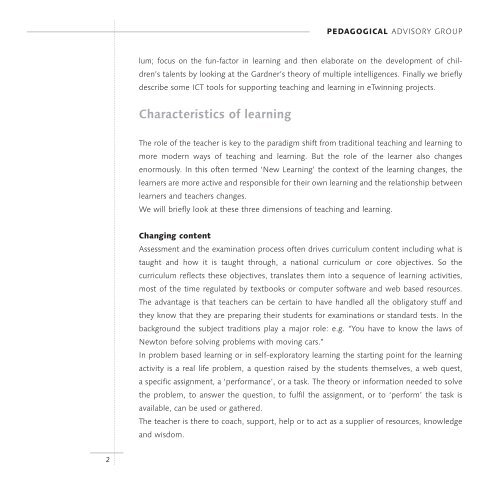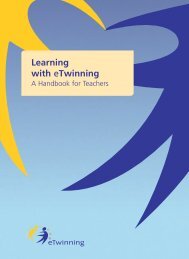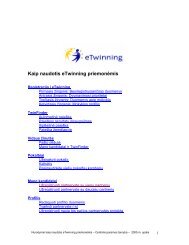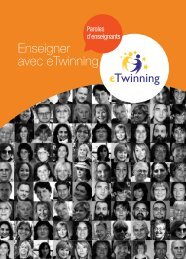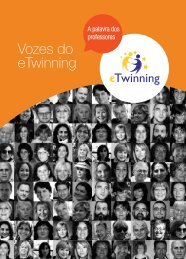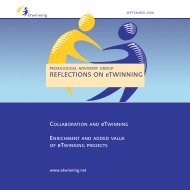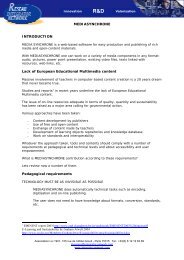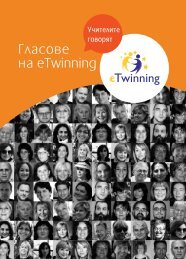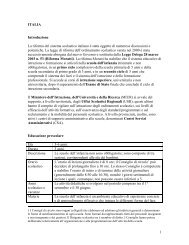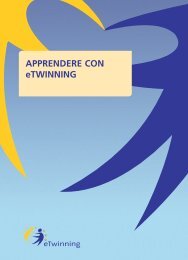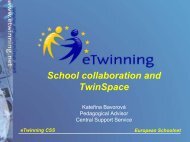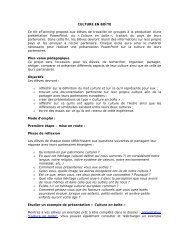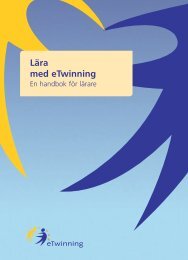REFLECTIONS ON eTWINNING
REFLECTIONS ON eTWINNING
REFLECTIONS ON eTWINNING
Create successful ePaper yourself
Turn your PDF publications into a flip-book with our unique Google optimized e-Paper software.
PEDAGOGICAL ADVISORY GROUP<br />
lum; focus on the fun-factor in learning and then elaborate on the development of children’s<br />
talents by looking at the Gardner’s theory of multiple intelligences. Finally we briefly<br />
describe some ICT tools for supporting teaching and learning in eTwinning projects.<br />
Characteristics of learning<br />
The role of the teacher is key to the paradigm shift from traditional teaching and learning to<br />
more modern ways of teaching and learning. But the role of the learner also changes<br />
enormously. In this often termed ‘New Learning’ the context of the learning changes, the<br />
learners are more active and responsible for their own learning and the relationship between<br />
learners and teachers changes.<br />
We will briefly look at these three dimensions of teaching and learning.<br />
Changing content<br />
Assessment and the examination process often drives curriculum content including what is<br />
taught and how it is taught through, a national curriculum or core objectives. So the<br />
curriculum reflects these objectives, translates them into a sequence of learning activities,<br />
most of the time regulated by textbooks or computer software and web based resources.<br />
The advantage is that teachers can be certain to have handled all the obligatory stuff and<br />
they know that they are preparing their students for examinations or standard tests. In the<br />
background the subject traditions play a major role: e.g. “You have to know the laws of<br />
Newton before solving problems with moving cars.”<br />
In problem based learning or in self-exploratory learning the starting point for the learning<br />
activity is a real life problem, a question raised by the students themselves, a web quest,<br />
a specific assignment, a ‘performance’, or a task. The theory or information needed to solve<br />
the problem, to answer the question, to fulfil the assignment, or to ‘perform’ the task is<br />
available, can be used or gathered.<br />
The teacher is there to coach, support, help or to act as a supplier of resources, knowledge<br />
and wisdom.<br />
2


